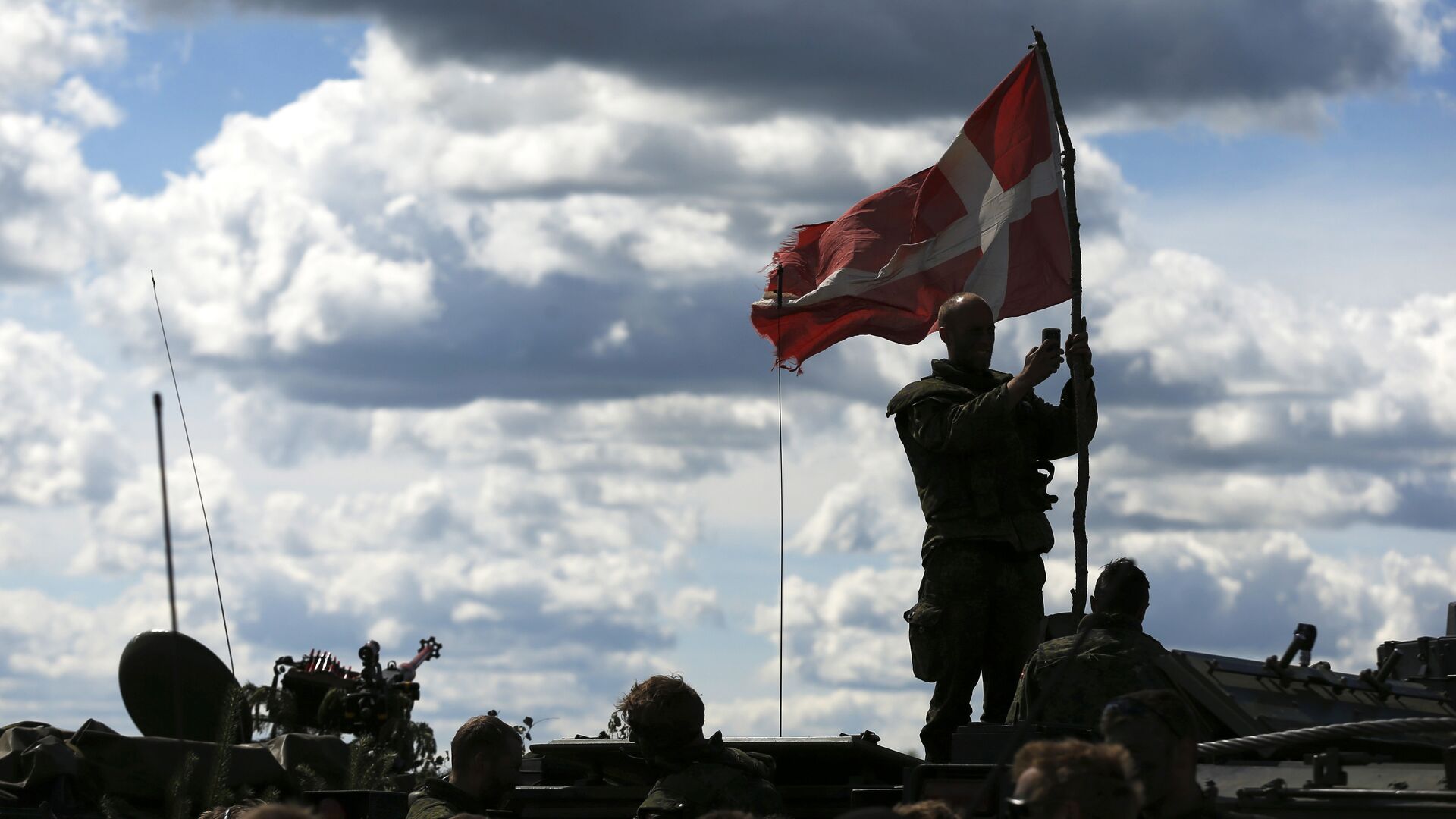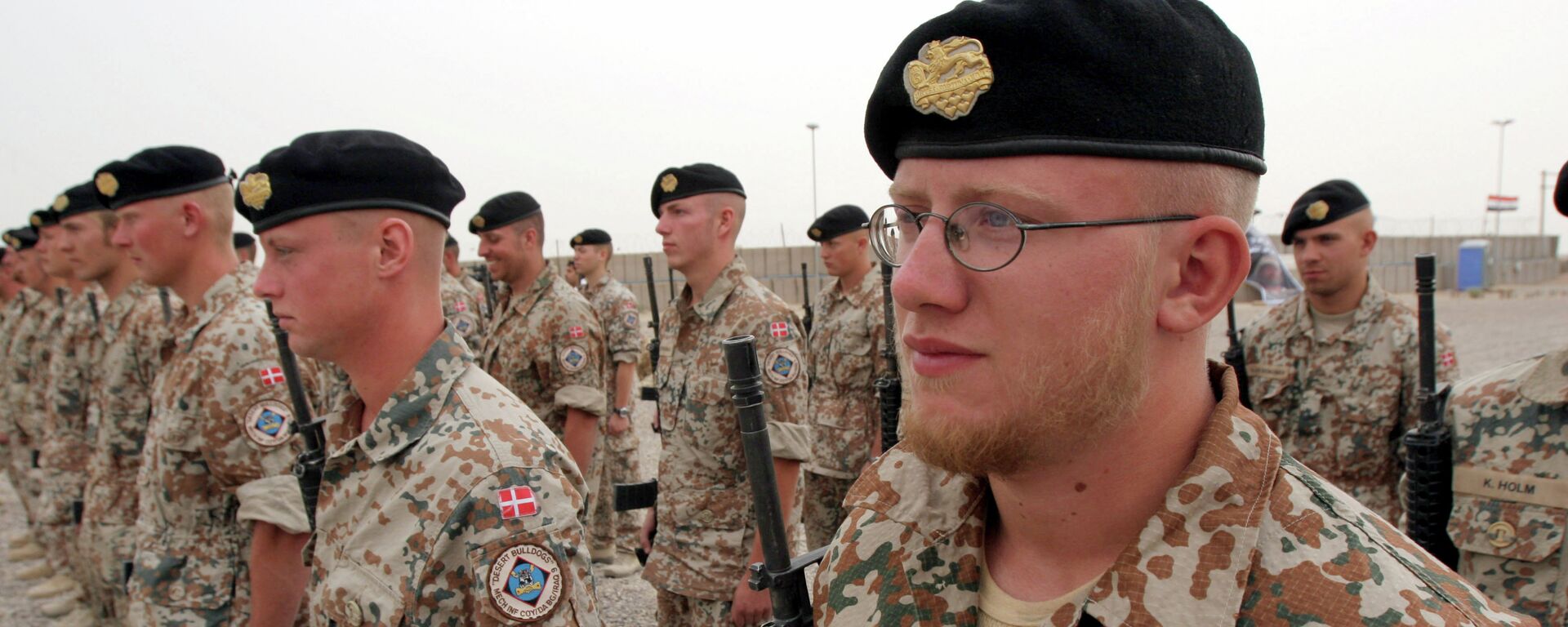Danish Soldiers Sent to Latvia 'Lack Everything From Ammunition to Underpants'

© AP Photo / Mindaugas Kulbis
Subscribe
Analyst Alexander Høgsberg Tetzlaff attributed the dramatic shortages to several years of cuts in military spending, calling it a “huge problem”. Previously, Denmark has received criticism from NATO for not having stockpiled enough ammunition.
At the beginning of May, 350 Danish soldiers were sent to Latvia with a few days' notice – ostensibly in a bid to “deter” Russia. Subsequently it has transpired, however, that they are ill-prepared and unable to maintain a high level of combat.
Important training exercises were skipped because the necessary ammunition wasn't sent; numerous activities were cancelled for lack of ammo, Danish Radio reported. Furthermore, the Danish soldiers arrived to find moldy, dilapidated tents and a lack of equipment.
“We lack everything from ammunition to underpants, to say the least. This is the saddest period I have been in the Armed Forces. And I've seen a bit of everything for 20 years,” “Dennis”, a1st-degree senior constable and joint trust representative for the Danish force in Latvia told Danish Radio, venturing that this lack of preparedness may “cost lives”.
Admittedly, the lack of ammunition made the soldiers seek creative solutions such as re-using already-fired ammunition belts.
Colonel Jens Lønborg admitted that the deployed soldiers lacked the necessary ammunition.
“Unfortunately, I agree that there was a lack of training ammunition from the start. It is a logistical problem that was not solved in time. It should have been there, and it did not come, so it's a mistake. There is no good explanation for this. That shouldn't have happened,” Lønborg, the operations department in the Danish Command, said.
According to Alexander Høgsberg Tetzlaff, an analyst at the Center for Military Studies at the University of Copenhagen, this may be seen as a consequence of years of spending cuts. He called it a “huge problem” that Denmark doesn't have enough stockpiled ammunition in case of war.
“To save money in the Armed Forces, storage capacity has been closed. It is always expensive to have things in stock, contingency is expensive. But it's good to have when you need it,” Høgsberg Tetzlaff mused.
“To save money in the Armed Forces, storage capacity has been closed. It is always expensive to have things in stock, contingency is expensive. But it's good to have when you need it,” Høgsberg Tetzlaff mused.
Denmark has been criticized by NATO for having empty shelves in the ammunition depot, in 2018 and most recently in 2020.
“It's not very fun as a soldier to run around in a forest and say 'bang' instead of shooting. Or drive in ordinary vehicles instead of armored vehicles,” he added.
With 350 soldiers, mainly from the Gardehus Regiment in Slagelse sent to Latvia, the Danish deployment at the Adazi military base increased to approximately 750 soldiers. This is the largest Danish deployment of manpower and equipment in Europe in 23 years.
The buildups in Europe have been attributed to Russia's special operation to "demilitarize and de-Nazify" Ukraine, which the West portrays as “invasion” and a “military threat”. Denmark has been a keep supporter of arming Ukraine since the start of the conflict, contributing an increasing arsenal of weapons ranging from anti-tank systems to naval Harpoon missiles, which may be used in truck-mounted mode and have a range of up to 240 kilometers. Russia’s Foreign Minister Sergei Lavrov described the Western military supplies as “pouring oil on the fire”, emphasizing that NATO was “in essence at war” with Moscow. He also stressed that the arms shipments to Kiev would constitute a “legitimate target” for the Russian forces.

